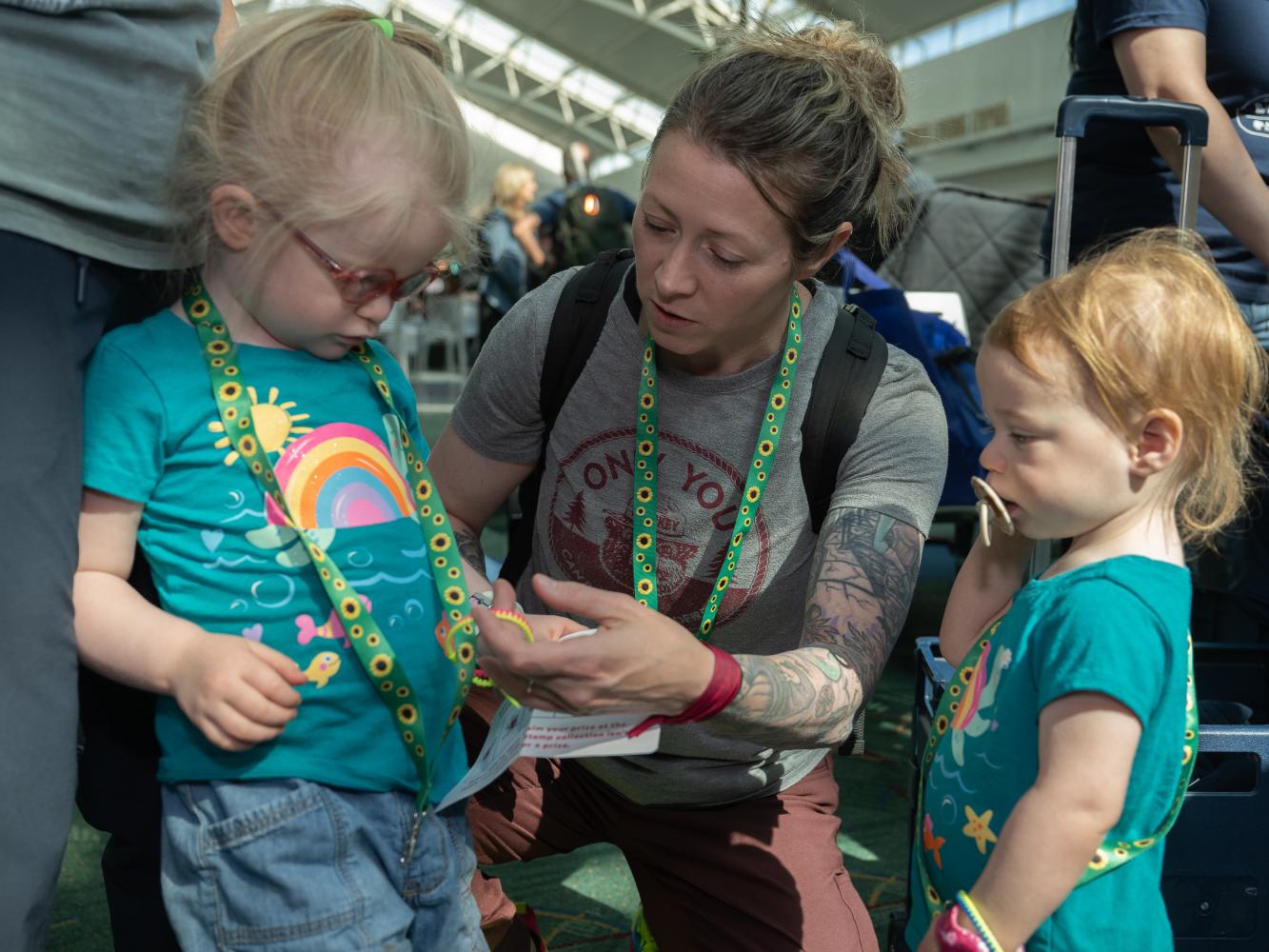
Part of delivering top-notch, inclusive service is being aware when guests need our help. That’s why we’re implementing the sunflower lanyard program.
Throughout PDX, you might see travelers wearing sunflower lanyards. It’s important to know what they mean and why they’re being worn.
The sunflower lanyard has one simple purpose: It indicates that the person wearing it – or someone with them – has a hidden disability and that they may need additional support.
What is an invisible disability?
An invisible (or hidden) disability is a disability that might not be immediately obvious. They don’t have physical signs and include learning difficulties, mental health as well as mobility, speech, visual or hearing impairments.
This video tells you more about hidden disabilities and how they might impact a person’s life.
What should I do if I see someone wearing a hidden disabilities sunflower lanyard?
There are five simple steps you can take if you spot someone at PDX wearing a sunflower lanyard:
- Ask if you can help. Talk to the person with the disability directly and don’t ignore them. Even if someone hasn’t approached you, they may still need your help.
- Be kind. Be patient and sensitive to their feelings.
- Talk and act normally. Listen carefully Everyone is different.
- Listen closely to what they are asking. If you’re not sure what they need, ask again to get clarity.
- Show respect. Give them time to finish what they’re trying to say. Stop what you’re doing and give them your full attention.
Stay knowledgeable Take a moment to watch this short video for additional ways to support travelers wearing sunflower lanyards.
Want to learn more? The PDX accessibility page lists where passengers can pick up sunflower lanyards – including any airline ticket counter and the Travel Oregon Welcome Center in baggage claim. Familiarize yourself with accessibility at PDX and learn what services TSA offers to assist travelers with disabilities, medical conditions and other special circumstances.
